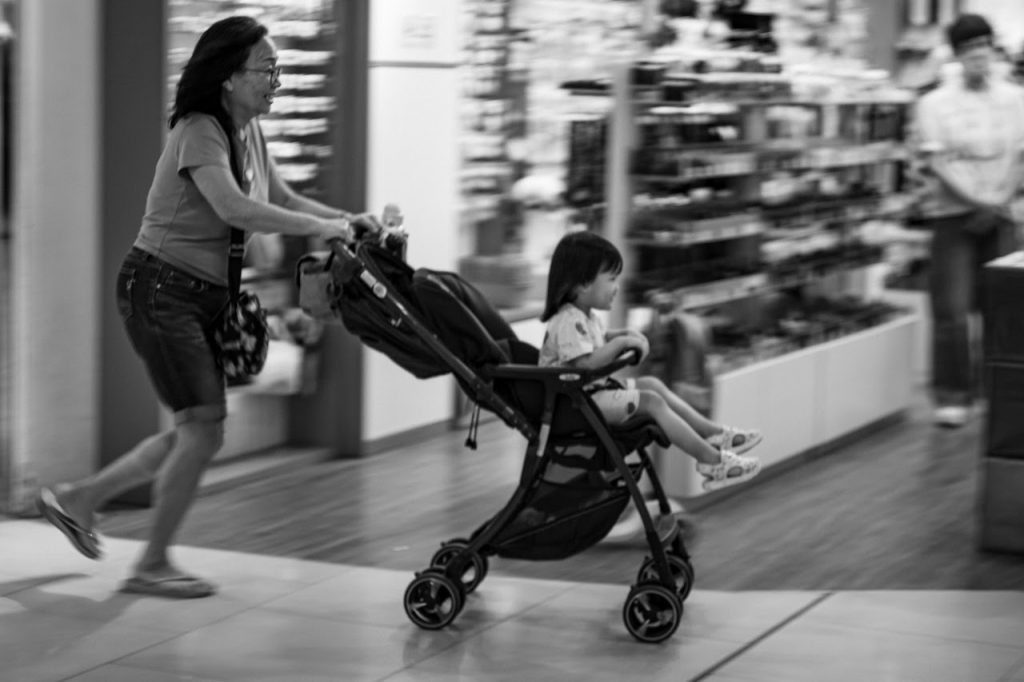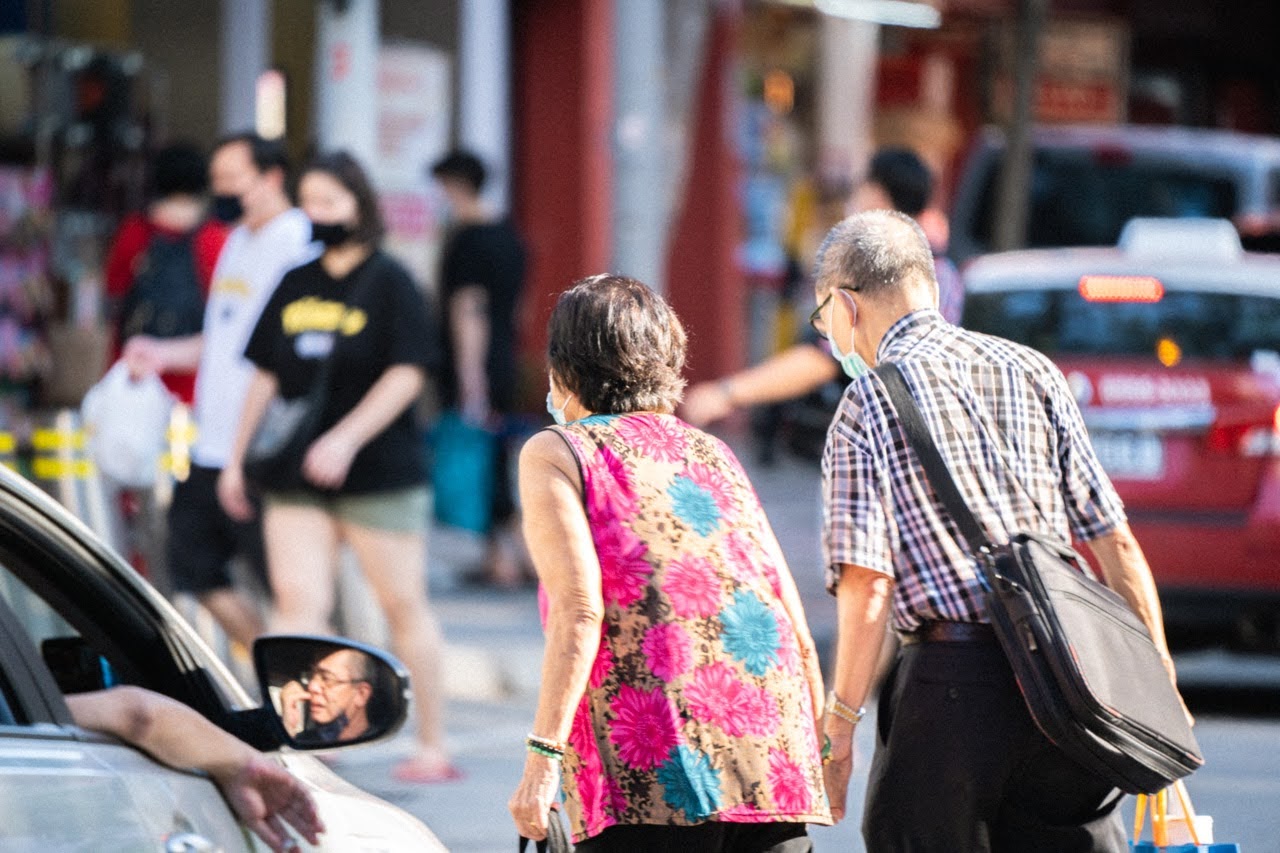Top image: Zachary Tang / RICE file photo
When you’re in your 30s or 40s, having an elderly parent seems normal. But in this era where couples are having children later in life, many young adults today are forced to reckon with the fact that their parents are already old, even if they’re not certified senior citizens yet.
Everyone’s parents age, and it’s forcing us to confront mortality and loss before it’s even here. It feels even more brutal when you’ve just graduated from teenhood and your parents are about to step into senior citizen territory. Forget lamenting about how school doesn’t prepare you for things like taxes; how do you begin preparing for your parents to age when they’re already old?
ADVERTISEMENT
Three young Singaporeans confess their deep-seated fears and anxieties about watching their parents grow old.
“It starts with the little, menial things—small habits you don’t pick up at first, but when you do, it’s like, since when were you here? That’s how it is with my dad. He’s 61 this year, he’s not old old, he still goes for his 9-5, but it’s clear he’s changed.
The first time I noticed something changed was a few years ago. We were on a little family trip to Malaysia, and he was extremely paranoid the entire time. He’s always been a kanchiong person to begin with, but this trip was when he was unnaturally so. He’d constantly worry about the what ifs: what if something went missing, what if we missed our bus? I later realised it wasn’t just a one-off incident.
Since that trip, I’ve noticed whenever we leave the house, he’d go around latching all the windows shut and locking the main door, take a few steps, then go back and check to see if the door’s actually locked. If something doesn’t go according to plan, he panics to the point his hands tremble. Sometimes, my mum comes home complaining about their day because he started overreacting in public.
Is it overreacting? I don’t know. His concerns are valid, but his ability to parse those emotions isn’t what it used to be. Heck, there are also times when he behaves like a Karen and picks a fight with anyone who slights him, even if it’s over small matters. My mother and I have to hold him back. His hearing also isn’t what it used to be, and he flares up whenever he can’t hear us even though we’ve raised our voices. He never used to have a temper like this.
My dad plans to retire within this decade. One can only wonder what he’ll be like after.”
—Mei Hui, 23

“I’m 27, my parents are 60 and 63. It’s not a big age gap, but it’s big enough to make me wish I was born earlier.
ADVERTISEMENT
I feel strongly like a big teenager. This 20s era is when most of us find and discover ourselves—I’m learning a lot about who I am as a person, what works for me and what doesn’t, why I behave in a certain way, why I like what I like and what I don’t like. I want to explore more, know more about myself, but I can’t. My parents are ageing so fast that I’ve got to dedicate my now to them, and I feel helpless that I’m not earning enough to support them.
The thing about growing old is that they’re also growing weaker. I’m fortunate that my father is healthy enough, because my mother’s health isn’t great. Her Medisave has been completely wiped out, and she’s using my dad’s to pay for her numerous medical bills. My mum’s fallen twice now, once leading to a fracture in the ribs and the other in the face. She walks slower now due to the pain and heavily relies on painkillers. I worry about how I don’t know how to help make anything better for her, and I fear the day she might need even more help.
There are also times when they ask for my siblings and my help with things like reading letters or payment for classes, not because they’re incapable of reading English, but because they can’t be bothered to. It’s a very “Oh I’m old, you do it for me.” Is it still considered ageism if it’s self-inflicted?
My mum had me at 35 and my sister at 37. It’s probably normal by today’s standards, but as someone who just graduated and just started working, I really wish I had been born earlier so I could’ve had more time to build a financial nest for my parents to take shelter in. I’ve stayed under their wing for so long; it pains me they can’t stay under mine.
I’m 27, my parents are 60 and 63. I’m not ready for them to get any older.”
— Amanda, 27

“My parents and I never had the best relationship, but despite all the trauma and misgivings, I still love them very much. Or at least, I love the version of them that I knew growing up.
As they get older, it feels like they’re regressing into a childish version of themselves. Sometimes, they behave in a way that’s so massively out of character that it leaves me speechless. I’ve always known my parents as kind, patient, and caring people. They were the ones that taught me empathy, to always think about others and to be gracious. I see them regularly get into fights and arguments between themselves and with other people, usually over the smallest, pettiest, non-consequential little things.
It’s frustrating; it drives me mad. I used to think it was because I couldn’t handle people being unreasonable or that our personalities were clashing. The grim reality is that they’re ageing, simple as that.
When I don’t recognise my parents, I get reminded that the version of my parents whom I’ve grown up with and loved is fading away. It’s selfish of me to feel this way, but I don’t want to, and I’m unwilling to let my parents grow older. I want them to stay the way they are—driving around town, having fun overseas, enjoying food and the rest of their lives as free adults—I don’t want to imagine, and I refuse to think about the day when they might become senile.
The thing is, even though I say my parents are more childish in their older age, the truly childish one is me. I cling so hard to my youth in hopes my parents can stay by my side—as my guardians and pillars of strength. I don’t want to grow up so my parents don’t grow old.
I love them too much to see them become someone I don’t recognise.”
— Mindy, 25






